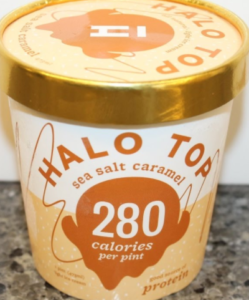Business & Money
I’m working on a big deal at work. The kind of deal that, if it closes, could knock out 50-75% of your annual revenue target in one fell swoop. Us sales people call this type of deal a “whale.” Whenever whales present themselves, my best practice is to loop in my leadership team so it becomes a team effort. As such, I sent an email to our executives asking for thoughts and feedback about my approach. To my dismay, the response I got was that the deal was unlikely to close and the prospective customer likely wasn’t serious about wanting to work with us. At the same time, they offered any support and/or resources I needed to try to close the business. They basically said “we’re doubtful that this will close, but we we’ll support you in any and every way.”
For a while I was a little disheartened by the seemingly cold response. After thinking about it more though, I think there’s a huge leadership lesson hidden below the surface. It didn’t make itself truly apparent to me until I read Jeff Bezos’ annual letter to shareholders yesterday. Here’s an excerpt:

“Disagree and commit.” It’s so powerful! In a simple three word phrase, he is acknowledging his disagreement, but simultaneously letting his team know that they have his full confidence and support.
It’s the same thing I got from my leadership team. They weren’t quite as excited as I was about the opportunity at hand, but also have enough trust and confidence in my ability to give me freedom and support for whatever deals I choose to pursue.
Human Progress
I went to the doctor’s office this week for the first time in a long time. When I arrived they asked for my insurance card. I had previously taken a picture and uploaded it to ZocDoc, which then aided me in finding a doctor and booking the appointment. My assumption was that my insurance information would then be shared with the doctor’s office. Wrong! Luckily I have the picture saved on my phone so it wasn’t an issue. Why is that, in the era of the internet and instant digital information sharing, insurance info can’t be sent quickly and securely between relevant parties?
Once I made it to the examination room, I was asked the same 1000 questions that we’re always asked at doctors offices. Any allergies to medications? Family history? Bla bla bla. Can’t the answers to all of these rote questions be stored in some central repository on AWS that’s easily accessible by certified medical professionals?
When I was leaving, I asked how I would receive my results? “The doctor will call you in about a week.” Send be an email for Pete’s sake! If the companies in this space won’t centralize all of my data (or perhaps can’t, due to regulatory red tape), at least give it to me in a digital format so I can do it myself!
You all know that I’m a techno-optimist, but sometimes I wonder whether the healthcare industry will ever catch up to every other vertical.
Philosophy
A few weeks ago I had a slice of pie from the local grocery store. It was incredible. The crust was baked to the perfect crispiness and it had sugar sprinkled on top.
This got my thinking about sugar coating in more general terms. In most cases that I can think of, sugar coating is a great thing. Take a delicious food item, sprinkle some sugar on top, and it generally gets better. There is, of course, one downside. Whatever you’re eating automatically becomes worse for you due to the added sugar. Moreover, if you think about most of the food items that have sugar sprinkled on top, most already offer exorbitant amounts of sugar in the first place. So it’s really just insult to injury.
I think this idea also applies to sugar coating in the less literal sense. That is, using indirect or gentle language to deliver a difficult or stern message. Sugar coating the message will make it easier to swallow for the recipient, but this isn’t necessarily a good thing. There are times, when dealing with children or overly sensitive people for example, when it’s necessary to soften the blow. But in general, I’m a fan of being direct and blunt. It might sting a bit in the moment, but I find that people come to appreciate honest and forthright feedback. You actually build more trust and value into your relationships.
Best to leave the sugar coating for yummy snacks and desserts.
My Latest Discovery
This stuff is incredible!!! Go try it immediately!

Hasta la vista baby!
Jeremy